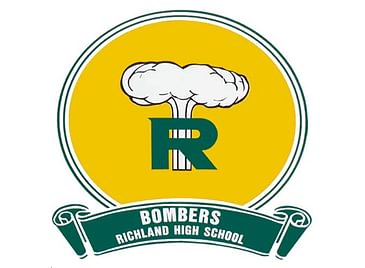Welcome to the My Nuclear Life podcast with host Shelly Lesher. In this episode, Shelly continues her conversation with Robert Franklin. Robert uses personal narratives in talking about the Hanford Lab. During this second part of their discussion, Shelly asks about the waste problem, how the B-reactor became a museum, the differences between local and national interpretations of history, and the experiences of African American migrant workers from the South. This last topic is catalyzed by Robert’s second book, Echoes of Exclusion and Resistance.
Shelly jumps right into continuing this conversation where they left off in the last episode. Robert talks about the Hanford plutonium reactors, the first dual purpose reactor, and national defense. Looking back to the 1960’s, listeners hear about the nuclear freeze movement, the Chernobyl disaster, and the N-reactor. Robert emphasizes the special challenge that nuclear products present as they capture both human fear and imagination. Nuclear waste issues especially prove to be difficult due to the consequences on all parts of life—but Shelly and Robert decide this is a topic for another podcast.
Shifting the conversation towards the B-reactor at Hanford becoming a museum, Shelly asks the details behind this process. Countless politics and challenges prove to lie behind this transformation. Robert emphasizes the amazing reality that a group of retired people were able to win the battle in making this possible and that anyone can come and take a tour today! They talk about the dividing factors between local organizing committees and national park service interpretations and the work that had to be accomplished in order to strike a balanced solution.
Robert takes the next portion of the conversation to hone in on the history and its intricacies. Robert discusses the issue of the hypothetical and the fallacy that hypothetical lives equal real lives. Taking a look at the war and invasions, he examines the underlying moral goods. Learn more about post-revisionists and the statistics that are used to revise history. There are many perspectives that complicate the story people ought to be listening to. While the local population elevates the idea of America, the outside community says Hanford is altogether bad and should be avoided. It’s complicated and messy, and Robert argues that people need to have both conversations simultaneously. History has a lot of sides, but people want a simple narrative; as man evolves, his understanding of the past evolves too.
The latter part of this episode is focused on the African American migrant workers. Learn about the migration from the Jim Crow laws, Hanford’s role, and the government regulated hiring. Robert sheds light on the Northern civil rights battles that often go undiscussed from history. The African American Community Cultural and Education Society was instrumental in connecting Robert with the black community and telling their story. Listen to the structural inequalities that kept the poor people poor and how history is always romanticized. There are burdens that have been passed down between generations.
Robert leaves us with his final thoughts on what he would want listeners to know about the work at Hanford. He shares that, ultimately, Hanford has a wide-ranging impact in many areas of life that proves to be messy, but has the opportunity to evaluate countless issues. There are many narratives that are rolled into one, this allows people the chance to grapple with the issues in the long term, but there are not always “solutions”.
Tell a friend, rate, and subscribe to My Nuclear Life wherever you listen to podcasts!
Links:
-Check out Robert’s book, Echoes of Exclusion and Resistance.
-To sponsor My Nuclear Life and receive gifts, visit Patreon.com/nuclearlife.
- Send an email to My Nuclear Life or visit their website.
Robert Franklin is the Archivist & Oral Historian of the Hanford History Project and Instructor of History at Washington State University Tri-Cities. He is the co-editor and author of two books on the Hanford area, Nowhere to Remember: Hanford, White Bluffs and Richland to 1943 and Echoes of Exclusion and Resistance: Voices from the Hanford Region.
Special thanks: Lexie Weghorn
Production costs for this episode were provided through National Science Foundation Grant PHY-1713816.





